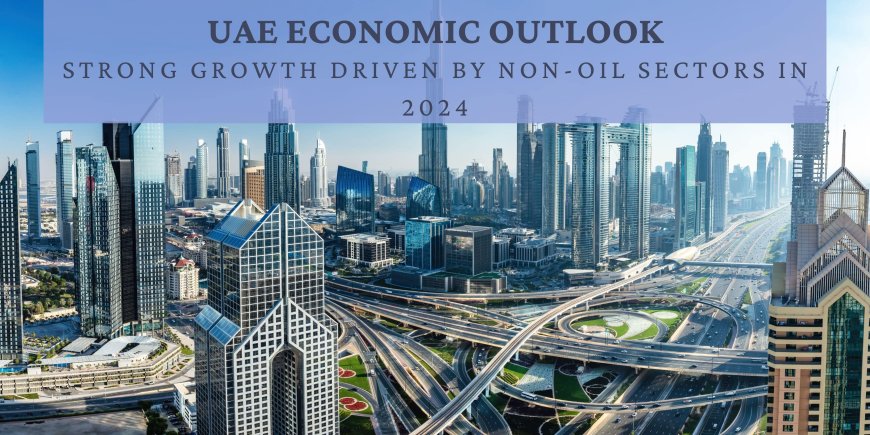UAE Economic Outlook: Strong Growth Driven by Non-Oil Sectors in 2024
The UAE economy is set to grow by up to 5.7% in 2024, driven by robust non-oil sector performance, strategic initiatives, and resilience in real estate and tourism.

UAE Economic Overview for June 25, 2024
The UAE economy is on a strong growth trajectory, with forecasts indicating a 5% to 5.7% expansion in 2024, outpacing global economic growth projections of around 2.8% (Arab News) (Gulf Business) (WAM). This robust performance is largely driven by the non-oil sectors, which now constitute over 73% of the national economy, a historic shift highlighting the country's successful diversification efforts (WAM).
Key Drivers of Economic Growth
-
Non-Oil Sector: The non-oil sector is a significant growth driver, with the Purchasing Managers’ Index (PMI) reaching its highest level since June 2019, indicating strong business activity and new export orders (ME Briefing). Real estate, tourism, and financial services are pivotal, with Dubai's real estate market seeing a notable increase in transactions and investor confidence (ME Briefing).
-
Real Estate: Both Abu Dhabi and Dubai's real estate sectors have shown remarkable resilience and growth. Abu Dhabi witnessed a 56% year-on-year increase in residential transactions, while Dubai’s real estate transactions surged by 37% year-on-year, reflecting strong market resilience and investor confidence (ME Briefing).
-
Tourism and Hospitality: The tourism sector is booming, with significant increases in hotel occupancy rates and international visitors. Abu Dhabi reported a 31% rise in hotel guests, and Dubai saw a 4.9 percentage point increase in hotel occupancy rates, highlighting the sector’s recovery and growth potential (ME Briefing).
-
Transportation: The transportation sector is also flourishing, with substantial increases in passenger traffic at major airports. Abu Dhabi International Airport recorded a 29.3% increase in passenger traffic, while Dubai Airports revised its passenger forecast for 2023 to 86.8 million (ME Briefing).
Strategic Initiatives and Future Outlook
The UAE government has implemented several strategic initiatives to sustain long-term economic growth. These include allowing 100% foreign ownership in over 1,000 commercial and industrial activities, introducing an insolvency law, and enhancing the ease of doing business (Gulf Business). Additionally, the UAE’s federal budget for 2024-2026, worth AED 192 billion ($52.3 billion), focuses heavily on social development, education, and healthcare (Gulf Business).
The country’s economic resilience is further underscored by its competitive standing among Arab economies. The UAE ranks first in competitiveness, reflecting its robust economic policies and business environment (GulfNews).
Challenges and Global Context
While the UAE remains relatively immune to global economic headwinds, higher interest rates and global inflation pose challenges. Nonetheless, the UAE’s diversified economy and strategic initiatives have positioned it well to navigate these uncertainties. The focus on non-oil sectors is particularly crucial, as the country aims to reduce its reliance on oil and enhance sustainable economic development (Gulf Business) (WAM).
In summary, the UAE’s economic outlook for 2024 is promising, driven by strong performance in non-oil sectors, strategic government initiatives, and a resilient real estate and tourism market. These factors collectively underscore the UAE’s robust economic foundation and its potential for sustained growth in the coming years.

 LD Web Desk
LD Web Desk 